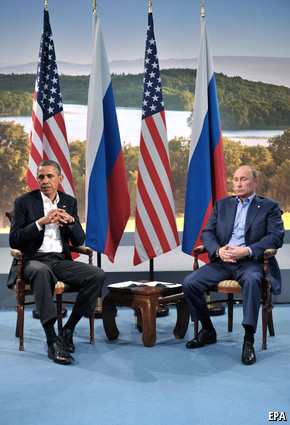US Human Rights Standards Are an 'Elastic Ruler'
Apparently, the U.S. has forgotten its own past self-aggrandizement as the guardian of "human rights," forgotten that people like Snowden are precisely the ones who should be protected under its own banner of human rights and forgotten that it has provided refuge for many dissidents from other countries in the name of human rights.
At this point, everybody seems to have grown accustomed to the two-faced nature of the U.S. when dealing with these "human rights," of which the U.S. itself is the standard-bearer.
In fact, the U.S. chooses to turn a blind eye when confronted with many people's most fundamental right to exist.
These past few days, the skies above Yemen have once more seen frequent drone activity in the wake of U.S. warnings of an impending attack by the terrorist organization al-Qaida.
In America's war on terror, the role of drones has been among the most controversial subjects. Drones are known as "death from above," as they are seen as an effective weapon against terrorists due to their capability of precision strikes on targets without the need to put their operators in harm's way. However, the fact that drones can enter other countries' airspace at any time and cause collateral damage — mass casualties among ordinary citizens, including U.S. citizens — has also caused a flood of controversy domestically.
Since Obama took up residence in the White House, U.S. anti-terrorism operations have become increasingly reliant on drones. Obama has previously spoken out in defense of these unmanned aircraft, calling them legal, effective and necessary tools. Still, after coming under heavy domestic and foreign pressure, Obama proposed a new strategy for the war on terror in May of this year, including the implementation of more stringent restrictions on the use of drones.
However, some are uneasy that since the U.S. sounded the alarm warning of an impending terrorist attack, drones have seemingly "justifiably" appeared in force once more. According to the U.S. media, a U.S. drone strike on Aug. 7 killed at least seven members of al-Qaida in Yemen, the fifth such strike in less than two weeks.
Drones may truly serve an important function in attacking al-Qaida and others whom the U.S. sees as enemies. However, the U.S. "signature strike" policy allows drones to open fire on ordinary people whose identities are unclear, making the probable death of innocents from drone strikes all but certain. But this so-called "collateral damage" is apparently an acceptable price to pay in the eyes of the U.S.
According to data from Foreign Policy magazine, 3,600 people have been killed by U.S. drones, cruise missiles, gunships and special forces in non-battlefield settings since 2002. Nobody is certain how many among them were innocents who became collateral damage. Additionally, based on CIA estimates, 150 of the 600 people whom the U.S. killed in Pakistan in a 14-month period from 2010 to 2011 were designated as "other militants." This suggests that the majority were collateral damage.
Quite obviously, not all people are equal. Some people's lives are nothing more than collateral damage in the eyes of the U.S., no more than a litany of numbers, cold and unfeeling.
These are America's so-called "human rights."

